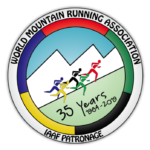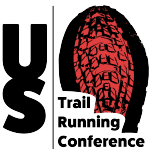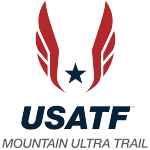
Written by Laura Clark for ATRA’s Spring 2017 Trail Times Newsletter.
Cresting Homer’s rosy-fingered dawn is a new interest in Greek heroes. Sparked by Rick Riordan’s middle-grade Percy Jackson series two offerings for adults have recently made their debut. As a matter of pride for all of us, they are written by ultrarunners accustomed to striving beyond their limits. Christopher McDougall of Born to Run fame has penned Natural Born Heroes, based on the Island of Crete, where mythology was born. Dean Karnazes, in The Road to Sparta, separates Pheidippides the man from Pheidippies the myth.

Natural Born Heroes, Penguin Random House, 2015.
Greek mythology, World War II resistance, parkour devotees, natural diets, reflexive combat – this book has everything except perhaps a dash of romance. But believe me, you won’t miss it.
In his usual meticulously researched, jumping from here-to-there style, you feel as if you are partaking in McDougall’s journey of discovery. For he is not merely an observer. His research takes him out of the library foraging for weeds with a Brooklyn ballerina, scrambling through alleyways and over rooftops with a London parkour group and exploring natural combat techniques like Wing Chun.
As runners, we consider ourselves fit. Granted, we could probably chase down a Central Park purse snatcher, but could we vault over a fence in pursuit or use our body’s momentum to effectively bring down an active shooter? Instinctively, we guiltily recognize our dilemma; hence, the popularity of Mudder Grunters, Spartan Races and November Projects.
Did you know that the entire course of World War II was altered by an island of natural born heroes? When Hitler had decided to use Crete as a supply staging area for his Russian invasion, an artist, a shepherd and a poet did the unthinkable: kidnap the German commander. Besides providing considerable embarrassment for the Germans, this effectively delayed the launch of the Stalingrad campaign, guaranteeing their unwinnable encounter with the icy Russian winter. It also tied up thousands of German troops in a disastrous search and rescue mission. How did these ordinary civilians, with no specific (to our way of thinking) military training rise to the occasion?
Accompany Christopher McDougall on his odyssey as he traces the kidnappers’ route from one invisibly concealed cave to another. And, along the way, discover how you can become your own hero.

The Road to Sparta by Dean Karnazes. Rodale, 2016
Now in his fifties, approaching the halfway point where looking back is often as important as moving forward, Dean Karnazes decides to reconnect with his Greek heritage. In typical fashion for him – if you can run a marathon, why not run 50 on 50 consecutive days—he decides to visit his relatives while tracing Pheidippides’ route.
After all, what’s one more marathon? Quite a lot, it turns out. As a high-ranking hemerodromoi, a messenger with ambassadorial duties, Pheidippides’ final 24.85 miles was merely the culmination of a 36 hour ultra. First he ran from Athens to Sparta to enlist that city state’s aid against the barbaric Persians, then onto the final marathon to tell Athenians that the battle was won. So Pheidippides was an ultrarunner, not “just “a marathoner.
While McDougall was able to consult well-documented maps and interview World War II survivors, Karnazes’ hero lived thousands of years ago and traversed rough terrain, much of which is now obscured by modern highways. Eventually, Karnazes was forced to admit that a real-life recreation of Pheidippides’ ancient route was a physical impossibility. Reluctantly, he settled for the 153 mile Spartahlon.
Still, Karnazes echoes in spirit the path of the ancient hemerodromoi, fueling solely on foods available at that time – fruits, olives, dried meats, pasteli, a mixture of ground sesame seeds and honey. No gels, no sports drinks. He also became an ambassador of sorts, signing autographs, speaking before townspeople, all while attempting to complete this grueling event in under 36 hours. Perhaps as a result of the unaccustomed diet or the extra duties as assigned, he even experienced an out-of-body sensation, much as Pheidippides might have.
Join Karnazes on his journey and discover the facts behind the myth of Pheidippides’ ultrarun. And the next time you do a marathon, it may not seem quite as long.










